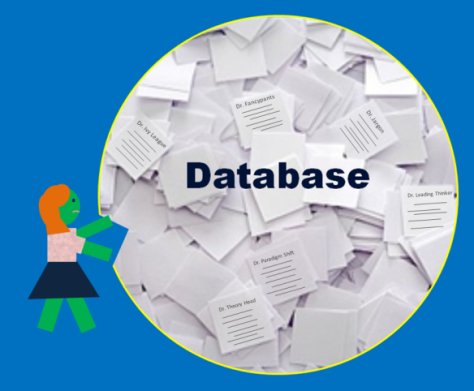Can you just show them the databases? This is a phrase I’ve heard a lot as an instruction librarian.
I’ve thought about it, and the answer is no. I cannot just show them the databases.
 Figure 1: An uncertain student encounters the magnitude of academic discourse through a library database.
Figure 1: An uncertain student encounters the magnitude of academic discourse through a library database.
I cannot “just” show them the databases because there are so many layers of destruction inherent in my process of pointing, clicking, and narrating. I am not demonstrating how students can find a scholarly article, I am demonstrating how profoundly students are marginalized from academic knowledge production. I am not identifying aspects of peer review, I am silencing all non-academic voices–including the students’. I am not modeling good search strategies, I am erasing myself as a teacher.
Databases embody the exclusionary nature of academic discourse. Students are on the outside, in search boxes, using natural language that the database most likely won’t…
